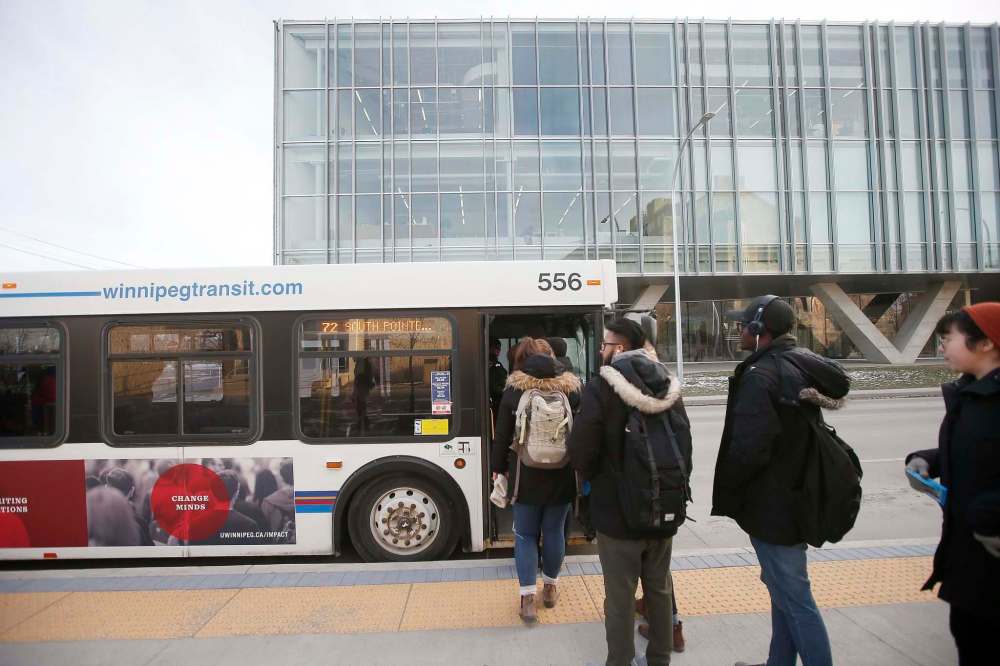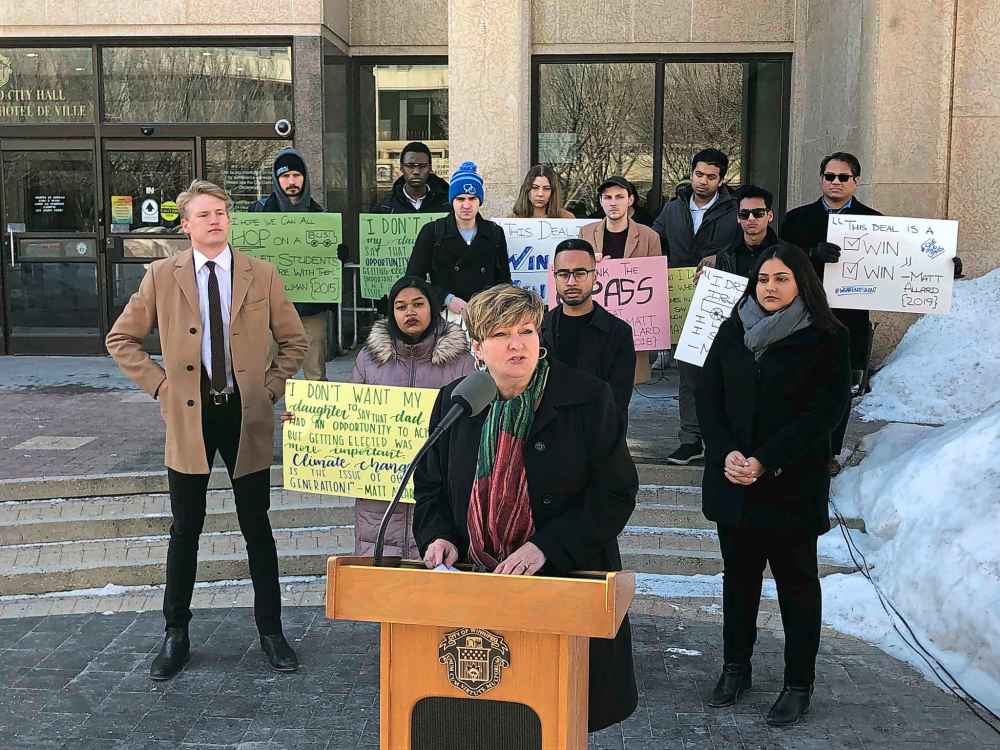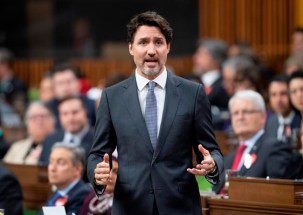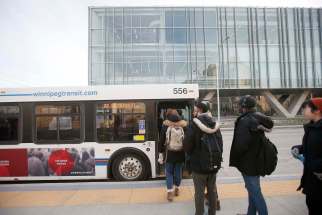Cancelling U-Pass a dead-end decision
Read this article for free:
or
Already have an account? Log in here »
To continue reading, please subscribe:
Monthly Digital Subscription
$0 for the first 4 weeks*
- Enjoy unlimited reading on winnipegfreepress.com
- Read the E-Edition, our digital replica newspaper
- Access News Break, our award-winning app
- Play interactive puzzles
*No charge for 4 weeks then price increases to the regular rate of $19.00 plus GST every four weeks. Offer available to new and qualified returning subscribers only. Cancel any time.
Monthly Digital Subscription
$4.75/week*
- Enjoy unlimited reading on winnipegfreepress.com
- Read the E-Edition, our digital replica newspaper
- Access News Break, our award-winning app
- Play interactive puzzles
*Billed as $19 plus GST every four weeks. Cancel any time.
To continue reading, please subscribe:
Add Free Press access to your Brandon Sun subscription for only an additional
$1 for the first 4 weeks*
*Your next subscription payment will increase by $1.00 and you will be charged $16.99 plus GST for four weeks. After four weeks, your payment will increase to $23.99 plus GST every four weeks.
Read unlimited articles for free today:
or
Already have an account? Log in here »
Hey there, time traveller!
This article was published 11/03/2020 (2108 days ago), so information in it may no longer be current.
It’s difficult to imagine how a city struggling with declining transit ridership could eliminate a program that has resulted in a significant increase in the number of people taking the bus.
However, senior officials at city hall are proposing to do just that.
The city’s 2020 operating and capital budget, unveiled last week, proposes to cancel the highly successful U-Pass program for post-secondary education students. The program, now in its fourth year, has seen a remarkable 25 per cent increase in ridership on buses that travel to and from the University of Manitoba’s Fort Garry campus, according to a 2019 city administration report. That means fewer cars on the road, less traffic congestion and a decrease in greenhouse-gas emissions.

Between 80 and 90 per cent of U of M and University of Winnipeg students use their discounted bus passes, the report said. About 59 per cent of U of M students use it at least three times a week. That’s pretty good buy-in.
The goal of the program isn’t simply to provide university students with cheap bus passes. It was designed to promote transit use, not just for students going to and from class, but also for non-campus travel and beyond. Clearly, it’s achieving those goals.
City officials said it best in the 2019 administration report: “Benefits to the city include growing transit ridership among students and achieving lifelong transit users as a result, as well as encouraging mode shift and the related positive impact on environmental factors.”
The U-Pass program has been so successful, city administration recommended last year that Winnipeg Transit extend it (after the current agreement expires May 31). It also urged city council to expand the program to include Red River College students. Last month, students at the U of M voted 59 per cent in favour of keeping the program and paying an 18 per cent price increase.
Mayor Brian Bowman says students can still purchase post-secondary education bus passes; the price of those, however, is much higher than the U-Pass. Also, many students wouldn’t qualify for the proposed low-income bus pass that is part of this year’s civic budget. Besides, the whole point of the U-Pass, which all full-time students at the three institutions must purchase as part of their enrolment fees, is that it’s a universal program that promotes transit over the use of individual vehicles. That’s critical in a city that has seen a decline in ridership since 2014.

City officials cite budget constraints as the reason for the cut. However, what they don’t include in their analysis are the savings derived from less wear and tear on roads, reduced traffic and lower emissions. It also doesn’t include the intangible benefits of convincing students at a young age that transit is a viable mode of transportation that might be incorporated into their working and home lives after they leave school.
Meanwhile, Winnipeg Transit has been posting multimillion-dollar surpluses virtually every year for at least the past 10 years. From 2009 to 2018, Transit generated operating surpluses that totalled $180.2 million. Only a portion of that money has been reinvested into Transit, mostly for capital costs such as purchasing new buses and enhancing on-bus security measures.
Surely there are resources available for this worthwhile program. Cancelling U-Pass would be short-sighted and a grave error.








